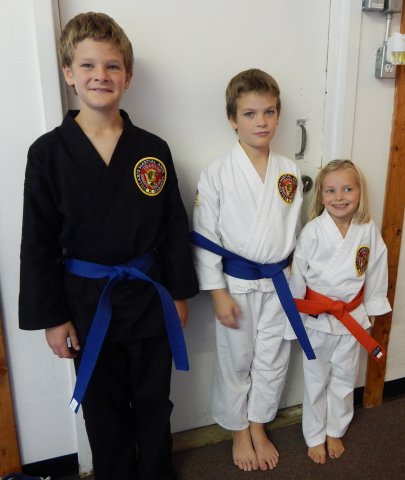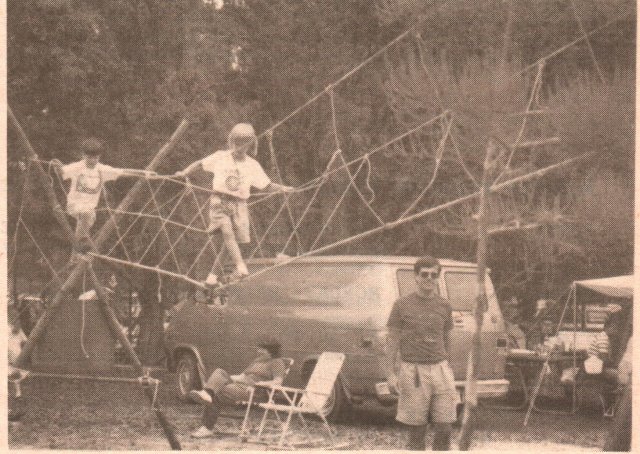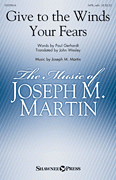I was making Thanksgiving candy in the kitchen. Porter was flipping channels in the family room. He settled on a documentary talking about someone named Birdseye who for reasons I didn't catch took his family to live in the frozen wilderness of Labrador. "I wonder if he's the guy behind Birdseye frozen food," he mused.
I am the family looker-upper. I didn't ask for the job, but my family quickly learned that asking Mom was better than using the dictionary or the encyclopedia, because I couldn't rest till I knew the answer. So if they lack dictionary skills, it's my fault. I also drive people nuts: we'll be in the middle of playing a game and someone will casually comment, "I wonder how high the Aswan Dam is," and you guessed it, much to their consternation I leave the game and look up the answer. (The Internet has only made my compulsion easier to indulge in.) It turns out they aren't really curious enough to want to interrupt the game. To which I reply, if you don't want to know, why ask!
So, Porter will flip through channels, and when I ask what he's watching, he'll reply, "I have no idea." At that point I have to grab my phone and check the TV listings, because even though I have no interest in the show, I can't stand not knowing the answer. In this case, I determined that the show was How We Got to Now: Cold, and Porter's hunch was good: the Labrador traveller was indeed Clarence Birdseye, who (eventually) brought us the world of frozen food.
The answer found, I went back to my fudge—only to be drawn away again by a subsequent part of the show: the invention of air conditioning. This I actually sat down and watched, because Porter is not the only one with good hunches: I doubted they would say much about Willis Carrier without interviewing the author of Weathermakers to the World. Sure enough, I hadn't watched for long before I was able to turn to Porter and remark, "You know Eric who sometimes comments on my blog? That's him." (Ungrammatical, I know.)
Anyway, that was fun.
Permalink | Read 2126 times | Comments (3)
Category Everyday Life: [first] [previous] [next] [newest]
You may know the story, but still I dare you to watch this with a dry eye. It's well done, and worth watching the extras at the end, too. (H/T Diana)
Permalink | Read 2058 times | Comments (2)
Category Random Musings: [first] [previous] [next] [newest]
I've written about Porter's Uncle Harry here before, but this article from the Cypress Cemetery website just came to my attention, so it seems appropriate to post it for family members this Veterans Day.
One veteran in particular was noted enough so as to be commemorated with a park and a National Honor Roll Memorial Tree, the large oak located in the northern part of the Annex. His name was Harry Gilbert Faulk and of the 28 veterans in Cypress who fought in World War I, he was the only Saybrook resident actually killed in action - in France on July 25, 1918 at 20 years of age. Company C of the 101st Machine Gun Battalion, to which Harry was attached, was heavily shelled while sleeping on the edge of some woods north of Chateau Thierry on the morning of the 25th which resulted in significant casualties. Harry, who was mortally wounded, was one of the casualties.
It's a good article, though it implies that the store was owned by Harry's parents, and Porter's sure it belonged to Harry's brother, Fred. It was always referred to as "Uncle Fred's store." Any family members remember differently?
Harry was the youngest of six children of Frederick Olaf and Hilma Justina Faulk, who were both born in Sweden. The Faulks were well known in Old Saybrook and on Saybrook Point in part because they owned a small store at the corner of Bridge Street and College Street that also included a post office (photo at left). The location is now occupied by one of the condominium buildings of the Saybrook Point Hotel complex. One can imagine that young Harry spent a lot of time at the family store.
Happy Veterans Day to all, and thanks to all who who serve today or have served in the past.
Congratulations on the new belts!
Permalink | Read 2073 times | Comments (0)
Category Everyday Life: [first] [previous] [next] [newest]
Permalink | Read 2239 times | Comments (1)
Category Everyday Life: [first] [previous] [next] [newest]
I've been silent too long, so here's a quick bit of common sense from a policeman who wrote to Free-Range Kids about common sense parenting: A Cop Weighs in on When to Call 911.
Being a street cop for 22 years, I have witnessed America’s slide from self-reliance to dependence in incremental steps. The invention of 911 has been a good thing and undoubtedly has saved many lives, prevented crimes, and has aided us in apprehending dangerous people. It has also revealed an embarrassing lack of critical thinking and common sense among some who call the police for everything.
...
Parents are afraid. Along with the daily media reminder their kids might die tortuous deaths, they also worry they might end up in jail if they allow their kids to walk to school alone. All of this can be solved by applying good, old-fashioned common sense and a balanced approach to safety.
The writer also teaches child safety programs. I haven't more than glanced at his Child Safety Fun blog, but you can check it out here if you're interested.
I teach them that most strangers are great people who are very helpful, but give them a few techniques to bolster their confidence and give their minds a rest knowing they will probably never need their skills, but if they find themselves in a jam, they know what to do.
Permalink | Read 2445 times | Comments (0)
Category Children & Family Issues: [first] [previous] [next] [newest]
This Rochester Review letters page cheered us both considerably tonight. Mike Armstrong, brilliant computer guru at the University of Rochester Computing Center in our day, confesses to being overwhelmed by today's computing power. His letter ("Something Doesn't Compute" in about the middle of the page) is worth reading as a peek into the field's ancient history; we joined the game in the days of the IBM 360/65. But it was to the final paragraph that we could relate best:
But those were, to me, the good old days of wooden computers and iron programmers. When I left the Computing Center in 1980, I felt I knew the room-sized computer systems thoroughly, from the hardware to the operating systems and most of the application programs. Now I carry a small computer in my pocket that has more memory and more computing power than all of NASA’s computers when they put Neal [sic] Armstrong on the moon, and I have no idea how it works. And it also makes phone calls.
Permalink | Read 2128 times | Comments (1)
Category Random Musings: [first] [previous] [next] [newest]
 Wool by Hugh Howey (2012)
Wool by Hugh Howey (2012)
Despite being a die-hard science fiction fan in my younger days, I rarely venture into the genre now. But I found my sister-in-law's description of Wool intriguing enough to request it from our library. And it is an intriguing story. Or, rather, set of stories, as this was an omnibus collection of Wool, Wool 2, Wool 3, Wool 4, and Wool 5. The 532 pages slipped by quickly, though I was surprised at how dissatisfied I was. The premise is good, the characters interesting, the plot twists satisfying, and as far as I can tell the author writes well. The ending did not disappoint. So why the dissatisfaction?
Perhaps because it was just a bit too gritty for me. I enjoyed the first book most, and thought that perhaps our oldest grandchild might like it. But it seems as if the author's critics told him after each book that he needed more profanity, gore, and action scenes. True, it all fits into the story, but made it much less pleasant to read. (Though it did remind me of one reason I prefer books to movies—it's a lot easier to skim through the fighting.)
My dislike of violence and profanity does not mean I like insipid books. I've read plenty of squeaky-clean books that left me feeling as dissatisfied as Wool. I prefer a book, like The Lord of the Rings (NOT the movie) where the paragraphs are a delight to read and the complexity and depth stand up to multiple re-readings.
I believe my dissatisfaction came because my strongest and most important criterion for enjoyment of a book, play, movie, or television show is whether or not the experience leaves me wanting to be a better person. It doesn't have to be super-spiritual, but I want to be inspired to be kinder, to be more clever, to make our home more inviting, or even just to run a little faster—but to be better in some way. Wool left me feeling that I had read an interesting tale, but nothing more.
The ending cleverly left room for many more books in the same setting, and there are at least four more available, though not at our library. If, someday, the library chooses to add them, and if I'm in the mood for something merely relaxing, I may return to the story: there are a few characters I'd like to follow further....
Not to mention a great lesson about cotton, and a potential field trip for some New Hampshire homeschoolers we know! Check out the Occasional CEO's article this morning.
 Something Other Than God: How I Passionately Sought Happiness and Accidentally Found It by Jennifer Fulwiler (Ignatius, 2014)
Something Other Than God: How I Passionately Sought Happiness and Accidentally Found It by Jennifer Fulwiler (Ignatius, 2014)
I've been a fan of Jennifer Fulwiler's Conversion Diary blog since it was called Et tu?, which takes me back at least as far as 2008. Granted, like Free-Range Kids and the Front Porch Republic, it has gotten short shrift in the last year or so simply because I like it so much: not only was I spending a lot of time reading (which I could have managed) but it too often inspired me to spend much more time writing (which I couldn't). I long to get back to these excellent blogs again, but only after I've acquired more control over responsibilities closer to home.
Be that as it may, when I discovered that our library now has copies of Something Other Than God, I grabbed it, all other responsibilities notwithstanding. Having followed the conception, gestation, long-and-agonizing labor, and finally birth of this book, how could I not? Okay, a real fan would have bought a copy, rather than waiting for the library, but if possible I like to know what I think of a book before I spend money on it.
This one is well worth spending money on, if you can't borrow a copy. (Heather, the Concord library has it.) Jen writes really well, even without an editor, and if I can perhaps detect a little heavy-handedness on the part of that editor ("you need more adjectives"), I can still say with assurance that the agonizing re-re-re-writing process resulted in a well-told, powerful, and entertaining story. My current Kindle-read was set aside once I opened the book, and I finished it two days later—it would have been sooner had I not had some discipline to avoid seriously compromising my other responsibilities. It's a compelling story, serious and funny, and seriously fun to read.
Something Other Than God takes its title from C.S. Lewis, who wrote: All that we call human history ... [is] the long, terrible story of man trying to find something other than God which will make him happy. Jen's journey from fire-breathing atheist to devout Catholic is not only for people who appreciate conversion stories; even those who are certain the pilgrimage took her and her husband in the wrong direction can appreciate the humor and the sheer humanness of the story.
The back-cover endorsement written by Gretchen Rubin (author of The Happiness Project) says it well: Thought-provoking, honest, and often hilarious. It will strike a chord with anyone who ever posed—or tried unsuccessfully to avoid—the big questions of life.
But those who are familiar with Jen's blog will be disappointed to learn that there is no scorpion story. Not one.
I'm not a big fan of going to the dentist, but yesterday's visit paid an unexpected benefit: the hygienist, a former neighbor of ours, shared this video with me.
Heather, this is especially for you, but I think Janet will appreciate it as well, despite her memories being less happy than yours. I enjoyed it a lot despite my own mixed feelings. There are plenty of good memories for Porter as well. :)
This video is just the trailer for a documentary project promoting music education, Marching Beyond Halftime. As such, it has relevance to many outside of our immediate family. Enjoy!
I haven't written much on the Common Core school standards mess (just this), but since Florida give us the opportunity to take sample tests, I couldn't resist checking out what was expected of third graders in mathematics. I was a math major in college and usually enjoy taking standardized tests, so it should have been a piece of cookie, as we say in our family in honor of one of Heather's college math instructors, who was, Ziva-like, idiom-challenged in English.
I'm strongly in favor of holding students, teachers, and schools accountable for what is learned in school. What's more, I have always had little sympathy for those who whine about the standardized testing that comes with a welcome concern for such accountability. For endless years schools have failed to work with parents, to open their doors and records to parents, and to provide parents any reasonable assurance that the massive amount of their children's time spent at school is not being wasted. They brought it all on themselves with their high-handed, "we know best, you just have to trust us" attitude.
And to those who complain that too much time is being wasted in school with teaching to and practicing for the tests, I always say the fault is not in the test, but in teaching to it and practicing for it. Any generalized testing system worth its salt should be able to count on the fact that test results are a representative sample of a student's knowledge; teaching to the sample undermines its reliability.
All that said, this is a test that requires practice, and specific, test-related teaching. First, doing math by mouse clicks instead of paper and pencil is a non-trivial exercise. In this I was aided by my hours of Khan Academy math work. But certainly students need time and practice to learn the specific testing interface.
Second, and most important, even with a bachelor's degree in math I found questions that made me stare blankly at the screen. I don't just mean i didn't know the answer: I hadn't a clue how to begin answering the question. (More)
Sunday, September 21, 2014
Give to the Winds Your Fears (words by Paul Gerhardt, translated by John Wesley; music by Joseph M. Martin; Shawnee Press 35029616)
Porter graciously waited in the airport so I could sing this one with the choir. It was a special day because we had a guest cellist to play with us. (You can hear the cello part with the anthem, though not our performance, at the link above). The anthem itself was notable for a couple of reasons. First, the words (albeit in translation) are by Paul Gerhardt, a German hymn writer I've come to appreciate thanks to Stephan's efforts. Second, although I'd never heard of this hymn before, I encountered it again in a Christianity Today article on the temperance movement. (I've included the link, but you'll only just be able to start reading this one unless you're a subscriber.)
Many temperance advocates also promoted voting rights for women. After all, women were more likely than men to vote to shutter the saloons that were destroying their homes. Carrie Nation and her hatchet may be the most famous image, but the 1873-74 Woman's Crusade—which led to the founding of the Woman's Christian Temperance Union (WCTU)—is a more accurate representation, with its crowds of nonviolent protesters linked arm-in-arm before saloon doors. A later WCTU historian described the crusade in Ohio:
Walking two by two, the smaller ones in the front and the taller coming after, they sang more or less confidently, "Give to the Winds Thy Fears," that heartening reassurance of Divine protection now known to every WCTU member as the Crusade Hymn. Every day they visited the saloons and the drug stores where liquor was sold. They prayed on sawdust floors or, being denied entrance, knelt on snowy pavements before the doorways, until almost all the sellers capitulated.
Here's something else I learned from the article:
There are a number of misconceptions about the 19th-century temperance movement. The first, which was shared by temperance activists themselves, is that it didn't work. In fact, it did. American drinking dropped dramatically after the temperance movement took off in the 1830s. Americans in 1830 were drinking 7.1 gallons of absolute alcohol per year per person. ... By 1835, they were down to 5.0 gallons; by 1840, 3.1. By 1910, shortly before Prohibition, this had dropped to 2.6 gallons; post-Prohibition, it was down to 1.2.... Even after every moral loosening the 20th century wrought, from flappers to the counter-culture movement, by the year 2000, the average American drank less than a gallon of absolute alcohol. That's more than six gallons less a year than their ancestors had about 200 years before.
 Your Life Calling: Reimagining the Rest of Your Life by Jane Pauley (Simon & Schuster, 2014)
Your Life Calling: Reimagining the Rest of Your Life by Jane Pauley (Simon & Schuster, 2014)
This is why we have friends. I would never have picked out this book to read. For one thing, I tend to avoid books by or about celebrities. For another, I in no way can identify with people who, when their children go to school, or leave home, or when they turn 50, or retire, say, "What on earth am I going to do with the rest of my life?" I don't need a new life; I have enough planned in the one I have now to see me through more productive years than I can possibly have left.
But a friend highly recommended Pauley's book, and I'll admit that it kept my interest even though I didn't buy into its focus. The Penzey's fans among my readers will best understand the effect that Your Life Calling had on me. It was very much like reading a Penzey's catalog, where I find myself repeatedly annoyed by the self-aggrandizement, the leftist slant, and the in-your-face distain for several of my strongly-held principles—yet I keep reading, because the stories are interesting and inspiring.
Pauley premise is that our generation is the first to have the long lifespan and the leisure to "reinvent" ourselves, possibly several times as we go through life. Today's young people are already doing it ("what we call reinvention is just 'the churn' for them"). In fact, for them it may be more of a necessity, given the pace at which technology (and thus the job market) is now changing. (The last sentence is my analysis, not Pauley's.) But it's new for us.
You may be surprised to know that people over fifty-five represent the largest age group of owners of new business start-ups. At an age when our own parents and grandparents expected to wind things down, people are getting a second wind.
The Stanford Longevity expert, Laura Carstensen, notes that withour new vitality come some pretty big questions. She says, "Those of us living today have been handed a remarkable gift with no strings attached—an extra thirty years of life for the average person. Now that gift is forcing us to answer a uniquely twenty-first-century question—what are we going to do with our supersized lives?"
Permit me an exasperated wail at yet another expert who misunderstands the term "life expectancy." But aside from that, it is true that our generation finds itself thinking in terms of second, often radically different, careers more than previous generations. One only needs to listen to someone of my parents' generation talk to realize that the men, at least, defined themselves very much by their careers. Of my generation this is less true, mostly I think because we were betrayed by the "be loyal to your company and your company will be loyal to you" compact. What is "me" is not my employment, and therefore I am free to move on to something entirely different.
That I get, as evidenced by my need to elaborate on it. I also appreciated Pauley's description of Imposter Syndrome: (More)
It was good to sing this one again.
Sunday, September 14, 2014
To Love Our God (Mark Hayes, Hinshaw Music HMC1576)






